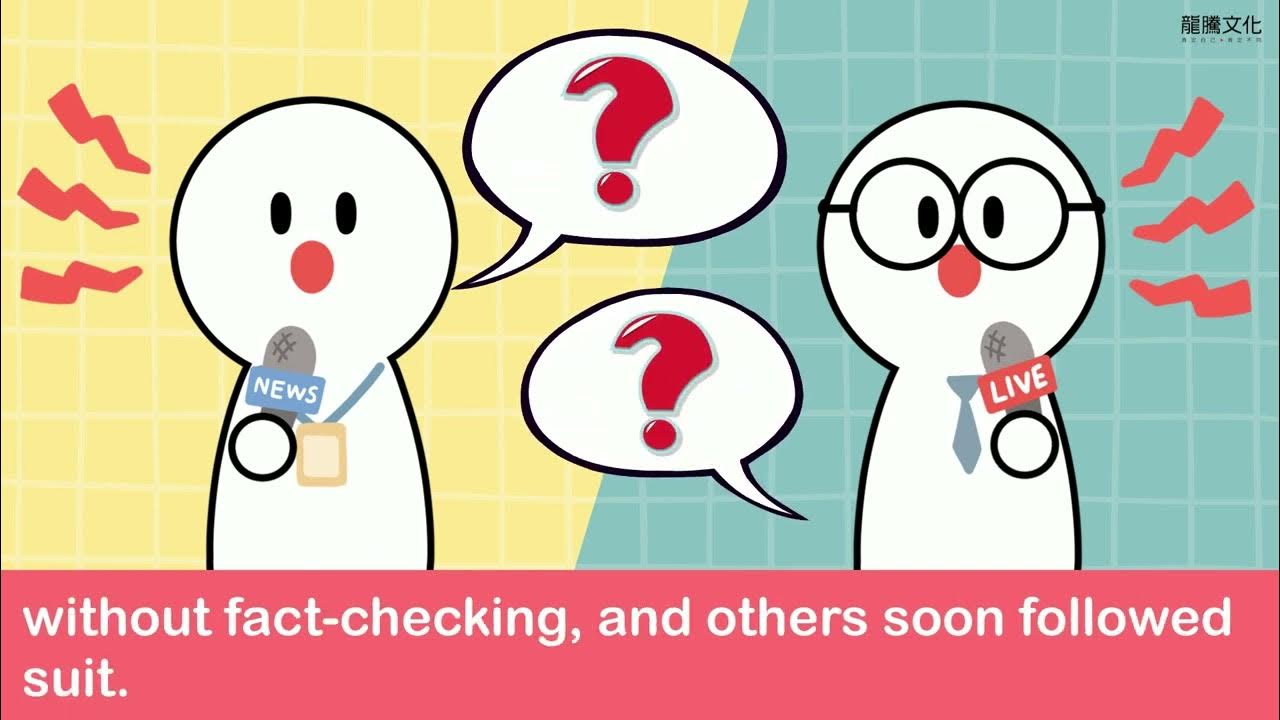Tips para hindi mabudol ng maling impormasyon (With KARA DAVID)
Summary
TLDRIn this informative video, Kara David from the UP Journalism Department addresses the prevalence of fake news and its impact on society. She offers five practical tips to help viewers discern真伪: verifying the source and author, checking the date of the news, discerning satire, reading beyond headlines, and consulting experts. David emphasizes the importance of critical thinking and fact-checking before sharing information on social media to prevent the spread of misinformation.
Takeaways
- 🔍 Check the source and writer of the news to verify its credibility.
- 🗓 Always verify the date of the news to avoid being misled by old or reposted content.
- 🤔 Consider whether the post might be a joke or satire, especially if it seems too outrageous to be true.
- 📰 Read beyond the headline to get the full context and avoid being misled by clickbait.
- 🔎 Check for supporting materials and consult experts to ensure the information is accurate.
- 🚫 Be cautious of sensational claims, especially if they are not backed by credible sources or evidence.
- 🏫 Use critical thinking before sharing information to prevent the spread of misinformation.
- 🌐 Be aware of fake pages and accounts that imitate official sources to deceive readers.
- ⏰ Timely news, especially regarding emergencies or weather-related announcements, should be double-checked for accuracy.
- 💡 Remember that words have power, so use them wisely and ensure that what you share is true and verified.
Q & A
What is the main issue discussed in the video script?
-The main issue discussed in the video script is the prevalence of fake news and the importance of being able to identify and avoid falling victim to disinformation on social media.
Who is Kara David and what is her role in the video?
-Kara David is a journalist from the UP Journalism Department, and in the video, she educates viewers on how to spot fake news and not become a victim of disinformation.
What is the first tip Kara David gives to identify fake news?
-The first tip is to check the source and writer of the news or information to ensure its credibility.
How does Kara David illustrate the importance of checking the source?
-Kara David illustrates the importance of checking the source by discussing a false report about Pia Wurtzbach allegedly smuggling drugs, which originated from a non-existent news outlet called 'Asia News'.
What is the second tip for avoiding fake news according to the video?
-The second tip is to always check the date when the news was posted to avoid being misled by old or outdated information.
Why is it important to check the date of a news post?
-Checking the date is important because old posts can be re-shared and mistaken for current news, leading to confusion and misinformation, especially during events like typhoons.
What is the third tip Kara David provides to discern fake news?
-The third tip is to determine if the post is a joke or satirical, as some news-like posts are intended for entertainment purposes only.
How does the video script use 'Cebu Dairy News' to explain satirical content?
-The video script uses 'Cebu Dairy News' as an example of a satirical page, which clearly labels its content as such, to show viewers how to identify humorous or joke posts that are not meant to be taken seriously.
What does Kara David suggest as the fourth tip for verifying news?
-The fourth tip is to read beyond the headline to get the full context and details of the news story, as headlines alone can be misleading.
Why is it advised to read beyond the headline?
-Reading beyond the headline is advised because headlines can be sensationalized or misleading, and the full article may provide important context or reveal that the news is about a different person or situation.
What is the fifth and final tip presented in the video script?
-The fifth tip is to check the supporting materials and ask experts to verify the information before believing or sharing it.
How does the video script use the example of a Facebook post about the Philippines sinking to explain the fifth tip?
-The video script uses the example of a Facebook post claiming that parts of the Philippines will sink due to rising sea levels, which was based on a misinterpretation of a report by the Asian Development Bank. This example shows the importance of verifying information and consulting experts to ensure accuracy.
What is the overall message Kara David wants to convey to viewers about social media and news?
-The overall message is to be critical and cautious about the information encountered on social media, to verify news before sharing it, and to use one's words wisely to avoid spreading fake news.
Outlines

هذا القسم متوفر فقط للمشتركين. يرجى الترقية للوصول إلى هذه الميزة.
قم بالترقية الآنMindmap

هذا القسم متوفر فقط للمشتركين. يرجى الترقية للوصول إلى هذه الميزة.
قم بالترقية الآنKeywords

هذا القسم متوفر فقط للمشتركين. يرجى الترقية للوصول إلى هذه الميزة.
قم بالترقية الآنHighlights

هذا القسم متوفر فقط للمشتركين. يرجى الترقية للوصول إلى هذه الميزة.
قم بالترقية الآنTranscripts

هذا القسم متوفر فقط للمشتركين. يرجى الترقية للوصول إلى هذه الميزة.
قم بالترقية الآن5.0 / 5 (0 votes)






